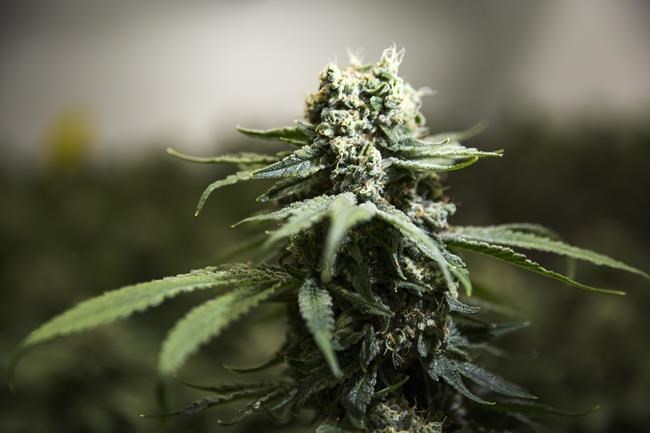A group convened by the federal government to study the legislation that made cannabis legal is recommending the country review one of the industry's biggest gripes: excise taxes charged to pot producers.
A report compiling 54 recommendations from the five-person expert panel released Thursday urged Finance Canada to consider a new model that would increase excise taxes on products with high quantities of tetrahydrocannabinol, cannabis's psychoactive component, and lower fees on those with smaller amounts. It positioned the change as a way to move consumers away from high-THC products.
The tax, which the panel called a "substantial burden" for cannabis producers, amounts to the higher of $1 per gram or a 10 per cent per-gram fee for dried and fresh cannabis, plants and seeds.
It was set in 2018, when Canada legalized cannabis and the government expected a gram of pot to sell for $10, at which price 10 per cent is $1. These days, it is easy to find products priced as low as $3.50 a gram, resulting in higher fees for producers who must still pay $1 per gram.
"We see an opportunity to update tax policy to reflect the current reality," the report said.
The finding came as the legal cannabis sector has faced the sobering reality that the market isn't as big -- or as easy to navigate -- as predicted.
Many of the industry's biggest players, including Canopy Growth Corp., Aurora Cannabis Inc. and Tilray Brands Inc., have spent the last five years laying off workers, closing facilities and grappling with balance sheets that reflect a challenging market and a slow crawl toward profitability.
Others have already fled the industry, selling their businesses or declaring bankruptcy. To blame, they say, is a combination of overregulation, a still-mighty illicit market, decreasing prices and in some regions, too many cannabis stores.
Many were hopeful the review would give credence to their experiences and if they were lucky, prod the federal government toward meaningful change.
Shortly after the report was released, Canopy Growth chief executive David Klein said his staff "welcome" the recommendations and encourage the government to use next month's federal budget to "take urgent action on the greatest issues impacting the industry."
He named as priorities a review of the excise tax and another to study whether it should be applied to medical products.
However, Rick Savone, a senior vice president with Aurora, said the report was a “disappointment” because it failed to address industry sustainability and provide actionable recommendations that would combat the illicit market or offer immediate excise tax relief. Savone added a call for immediate excise duty relief in the upcoming budget, rejecting the idea of incremental changes.
The recommendations were compiled over 18 months and go beyond the economics of pot to also delve into Indigenous participation in the sector and the health and safety of Canadians, including youth who may be exposed to cannabis.
Large swaths of the report focused on cannabis packaging, which manufacturers are required to ensure does not entice youth to try their products. Thus, it cannot feature cartoons or celebrity endorsements.
The report said Health Canada should revise packaging rules to allow companies to include QR codes to convey credible information about cannabis or even labels saying a product is certifiably organic or recyclable.
It also advocated for Health Canada to develop a "standard dose," which companies could use to help convey the amount of a product that should be consumed at one time.
"This could be an effective nudge for cannabis consumers to move toward lower-risk cannabis use behaviours," said the report.
Despite cautioning that such a standard has been "elusive for several years" because cannabis is consumed, metabolized and experienced in many different ways, it said the measure would be a worthwhile task for Health Canada.
While the report outlined several areas of change, it also reaffirmed some of the country's existing pot policies, like the 10 milligram per package limit for THC.
The panel said the industry felt raising the limit would help it squeeze out illicit sellers with products containing higher THC amounts and prices for edibles that can be up to 90 per cent lower than legal counterparts.
Public health stakeholders, on the other hand, supported maintaining the current limit because they saw a rise in unintentional cannabis poisonings among children since legalization and were concerned the severity of these incidents would only climb with a greater THC threshold.
"Ultimately, we felt that there are too many unknowns and too much uncertainty about the likely consequences of increasing the amount of THC in these products," the panel said.
"Therefore, we are of the view that prudence is warranted here and accordingly, we recommend that the current limit be maintained, and that research be undertaken that will fill critical knowledge gaps related to this issue."
Health Canada said Thursday it is reviewing the panel's conclusions and will provide recommendations to the federal government on potential next steps. It offered no timeline on when those suggestions may be delivered.
The government was late to launch the panel's review of the Cannabis Act, which was due to begin around the three-year anniversary of legalization but was pushed back when the COVID-19 pandemic materialized.
The review chaired by Morris Rosenberg, a former deputy minister of justice and deputy attorney general of Canada, began in September 2022.
By the time it concluded, panellists had heard from 600 participants, including cannabis retailers, growers, medical professionals, public health advocates and consumers.
This report by The Canadian Press was first published March 21, 2024.
Tara Deschamps, The Canadian Press



